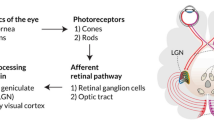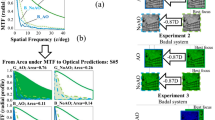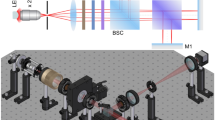Abstract
AS is well known, it is difficult to compare the intensities of lights of different colour. We can tell when one is much brighter or much darker than the other, but values obtained for the point of balance by the direct methods differ widely amongst themselves. It is consequently necessary to use the flicker photometer or the step-by-step method; in the latter method a series of lights of different colours intermediate between the colours to be compared is used, and the one end colour is compared with the first of these, the first with the second, the second with the third and so on. Thus by reducing the difference in colour its disturbing effect is eliminated at the expense of some time and a cumulative error in the settings.
This is a preview of subscription content, access via your institution
Access options
Subscribe to this journal
Receive 51 print issues and online access
$199.00 per year
only $3.90 per issue
Buy this article
- Purchase on Springer Link
- Instant access to full article PDF
Prices may be subject to local taxes which are calculated during checkout
Similar content being viewed by others
Author information
Authors and Affiliations
Rights and permissions
About this article
Cite this article
HOUSTOUN, R. A Simple Method of Heterochromatic Photometry. Nature 135, 1000–1001 (1935). https://doi.org/10.1038/1351000a0
Published:
Issue Date:
DOI: https://doi.org/10.1038/1351000a0
Comments
By submitting a comment you agree to abide by our Terms and Community Guidelines. If you find something abusive or that does not comply with our terms or guidelines please flag it as inappropriate.



